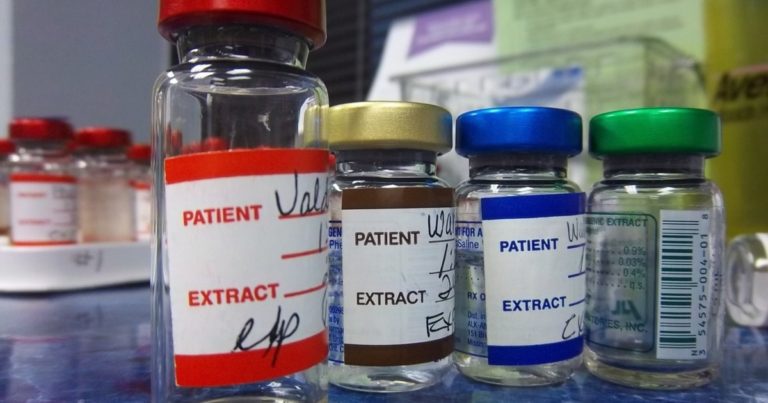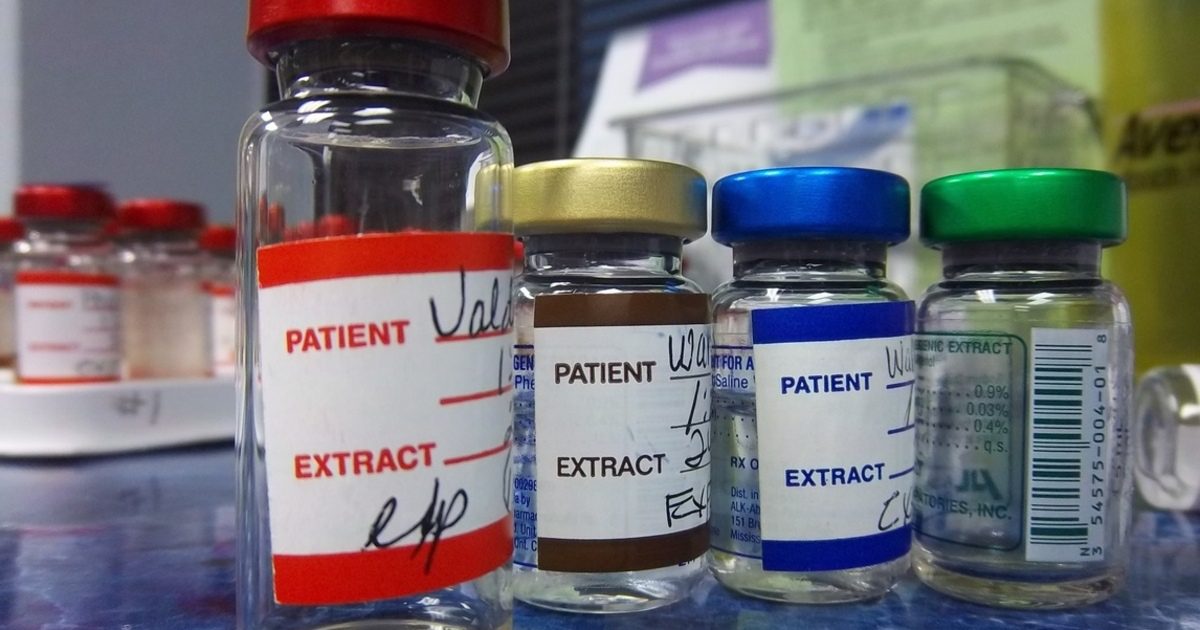The Advocacy Council has received several member inquiries recently related to preparation of allergen and venom extract vials (CPT codes 95144, 95165, and 95145-49) and the requirement of on-site physician supervision. We have addressed this issue in the past, but the COVID-19 public health emergency (PHE) has provided temporary additional flexibilities.
Medicare rules require that a physician (or other supervising practitioner) be on-site at the location where allergy extract vials are prepared. When vials are prepared by clinical staff, they are covered by Medicare under the benefit category of “services incident to” the services of a physician. Medicare regulations specifically state that unless a specific exemption applies, incident to services require direct supervision.
Direct Supervision: “the physician (or other supervising practitioner) must be present in the office suite and immediately available to furnish assistance and direction throughout the performance of the procedure.”
Direct supervision does not mean the supervising physician or other practitioner must be in the same room where vials are prepared, but they must be on-site at the location where extracts are prepared. Until the end of the calendar year in which the COVID-19 PHE ends, the presence of the physician (or other practitioner) includes virtual presence through audio/video real-time communications technology (excluding audio-only).
The direct supervision requirement is also embedded in the reimbursement for allergen and venom immunotherapy codes (95165, 95144 and 95145-49). When these codes were valued by the AMA Relative Value Update Committee (RUC) and by CMS, physician work was considered to include not only the determination of which allergens, concentrations, and development of the dosing schedules, but also the time spent providing direct supervision of sterile preparation and quality control.
Although the law and regulations referenced above apply only to Medicare, the CPT code language for allergen immunotherapy services that are used for billing all payers requires “supervision of preparation.” Although supervision is not defined in CPT, it is certainly possible that other payers, including state Medicaid agencies, may also follow Medicare’s rules with respect to direct on-site supervision.
The Advocacy Council – ADVOCATING FOR ALLERGISTS AND THEIR PATIENTS.




